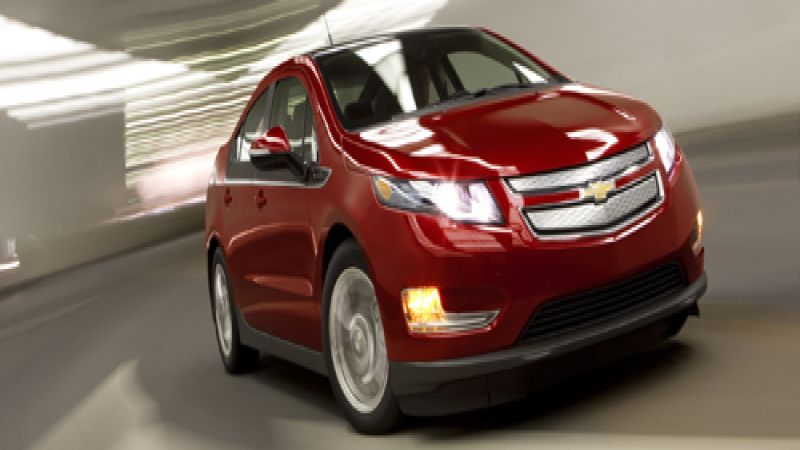Speaking to CNNMoney.com, Mike Omotoso, an industry analyst with J.D. Power and Associates, said his firm expects that about 20,000 electric vehicles will be sold this year. Total industry sales are expected to be 12.5 million, which means less than two-tenths of all vehicles sold.
To put that in perspective, only two companies still in business in 2011 sold less than 20,000 vehicles in 2010: Jaguar with 13,340 and Saab (which was barely a company in 2010) with 5,446. Even Suzuki sold more cars in 2010 with 23,994 than the projected electric vehicle sales of 20,000 in 2011.
Why all the fuss about electric vehicles then? They're the latest automotive flavor. There is already strong technology on the market in terms of clean-burning diesel that will decrease our dependence on oil with its 30 percent fuel-efficiency. Yet, the general public is caught up in electric vehicles, which will sell only 20,000 vehicles in 2011.
Industry statistics indicate that only 7 percent of new car shoppers are even considering electric vehicles, which shows you how difficult it must be to close an electric vehicle sale if less than two-tenths of one percent of new car shoppers will actually buy an electric vehicle in 2011.
The major stumbling block right now would be the cost. The Nissan Leaf, at less than $32,800, could almost be considered affordable when a $7500 tax credit is deducted from the MSRP, resulting in a $25,000 price tag. The Chevrolet Volt, though, which is comparably sized to the Leaf, happens to cost $7500 more.
Tesla is also on the market with its high-speed roadster that does 0-60 in 2.9 seconds. It's quick but also carries a $100,000 price tag. However, it is introducing a lower-cost sedan in 2012 (which means it won't affect 2011 sales of 20,000 electric vehicles) that is slated to cost $50,000.
Another additional expense associated with electric vehicles would have to be the tax credit of $7500 associated with the Nissan Leaf and the Chevrolet Volt. Right now, in order for consumers to earn it, they have to file an income tax return to get their credit. The Obama administration wants dealers, in effect, to buy the tax credit from consumers. The dealers, theoretically, would offer consumers a $7500 break in price and then file the paperwork to recoup the cost.
One more cost associated with the electric vehicles is the charging stations that should be installed for the maximum recharging times. Most homeowners are looking at a cost of $1500, presumably paid for in part by the tax credit. Again, though, it is an out-of-pocket expense that is reimbursed. Some federal programs will provide credits for the installations.
Dealers, though, do not want to be in the position of fronting the government tax credit money. They fear lengthy delays to get reimbursed and possible snafus as happened with the Cash for Clunkers program in August 2009.
The industry also needs to factor in Americans love their freedom. They want to be able to hop in their cars and go without planning ahead of time that their cars have been charged. They also want to be able to take trips longer than 100 miles on a whim apparently. That's why many of them are scoffing at the notion of a vehicle that only gets 100 miles to a tank full of energy like the Nissan Leaf.
Chevrolet wisely foresaw that range anxiety (or more likely market researched that anxiety) with the Volt that uses a gas engine to power the electric motors that turn the wheels when they run out of juice. Under the right conditions, a Chevrolet Volt can take a driver about 350 miles.
One thing the public sector needs to do, besides give the tax credits, is mount an informational campaign that shows electric vehicles are a viable alternative. It took years but most people wear seat belts now because of those horrific ad campaigns from the '70s that all but guaranteed you would be maimed or killed if you didn't. That push could help the Obama administration reach its goal of one million electric vehicles on the road by 2015.
But can the public and the industry get beyond 20,000 electric vehicle sales in 2011? It's possible but sales are going to have to become more mainstream and move beyond the Ed Begley Jr. types who want to be seen as early adopters of green technology. Toyota has managed to sell 1 million Prius sedans since first launching the hybrid line ten years ago.
Set Torque News as Preferred Source on Google











